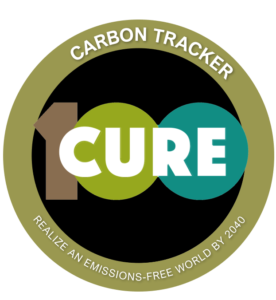

Carbon Tracker App
Welcome to the CURE100 household Carbon Tracker App which enables you to make informed choices to reduce your household carbon emissions. This tool will help you estimate and understand your household’s emissions and compare them with others in your zip code. You will find ways to reduce your carbon footprint in each category.
The global per-capita footprint is about 6 tons of CO2 and the U.S. average is about 16 tons. This tool will help you plot your way to low single-digits where we all need to be very soon.
In many cases, by reducing carbon emissions you will have the opportunity to save money, too. Please read our FAQs to learn more about the Carbon Tracker App and get prepared for your household carbon assessment.
The app allows you to view data by community. For our purposes, a community is typically a chapter of CURE100 or a licensee of the Carbon Tracker. All communities are listed in the table below. Simply choose a community that best fits you and click on the launch button. For communities with at least 10 respondents, the app will display in the “Community Dashboard” tab average and statistical data by community to help compare and understand results.
By clicking a launch button below, I acknowledge and agree to abide by the End User License Agreement, and I understand CURE100’s Privacy Policy. Please click the launch button below corresponding to your chapter or community (if in doubt, use the CURE100 launch button).
Launch buttons for chapter/community (alphabetical)
Refer a friend to our Carbon Tracker
- Click here to send a referral email. It will open up in your email tool with a pre-populated subject and body, which you can customize. Remember to enter your friend’s e-mail address in the “To:” field instead of the [email protected] placeholder.
- If you are on a public computer or device on which your own e-mail is not set up, click here to fill in a short form and send a referral to your friend.

REGGIE App
REGGIE (Regional Greenhouse Gas Inventory Estimator) is part of CURE100’s Carbon Tracker software suite. Use of the software is free to all, and does not require a userid or profile. REGGIE is also available as a tab in the Carbon Tracker. REGGIE provides a community-wide Greenhouse Gas (GHG) inventory for any zip code or combination of zip codes in the U.S. Many Towns, Districts, Villages and Counties would benefit from knowing their Greenhouse Gas (GHG) inventory. We call this a “baseline” inventory because it is the starting point for community-wide carbon literacy and decarbonization efforts. By knowing a baseline inventory, you can use REGGIE to understand which emissions are the “heavy hitters” and create a quantified decarbonization plan. See this fact sheet to learn more about REGGIE, how to use it and what’s in the report it produces.



